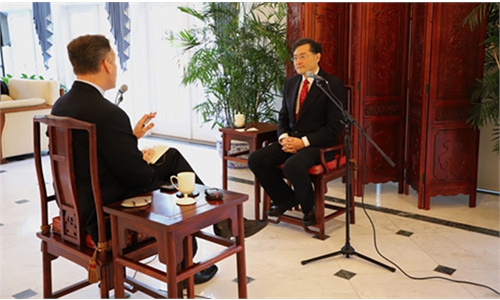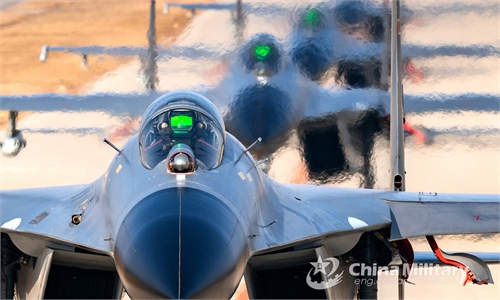Taiwan island blindly follows US; cries ‘bullying’ in an act of self-pity amid China-Russia talks

The night view of Taipei, Southeast China's Taiwan, June 20, 2019. Photo: Xinhua
As China and Russia agreed on closer strategic coordination at the beginning of the Beijing 2022 Winter Olympics, the Taiwan island on Saturday condemned the timing of China and Russia's "no limits" partnership as "contemptible," saying the Chinese mainland was "bringing shame to the spirit of the Games."
This ridiculous outburst by Taiwan once again highlights its identity myth. Taiwan has always considered itself a so-called "country." The international community, however, recognizes it as a part of China. In fact, Taiwan itself participated in the Beijing Winter Olympics as a region under the name of Chinese Taipei within the United Nations framework. Taiwan has been manipulating identity politics and the ideological opposition of "democracy" versus "authoritarianism" all these years, going so far as to ignore the facts.
What is hard to understand is how the joint statement issued by China and Russia could trigger a mysterious "trauma" for the Taiwan island. What is in Taiwan island's way when the heads of China and Russia meet and talk about cooperation? It is simply inexplicable. But Taiwan at present has reached the point where it will oppose anything related to the Chinese mainland regardless of what is right or wrong. It opposes everything the Chinese mainland does and disguises it as an ideological confrontation, which has been a habitual operation of the island's leader Tsai Ing-wen and has intensified over the years.
In addition to promoting its infamous "Taiwan secession," the Taiwan authorities complained about the "arrogance and bullying" of the Chinese mainland and alleged its "aggression, expansionism and damaging of peace." In fact, China and Russia only reaffirmed the internationally recognized one-China principle.
China and Russia's position on the Taiwan question has been consistent for decades and has never manifested itself as the "bullying" Taiwan claims, but rather a statement of universally recognized facts. If this is "bullying," countries without "diplomatic relations" with Taiwan, including the US, the UK, Germany, and France, are bullying the island as well. Taiwan's accusation is logically wrong in the first place.
Meanwhile, it makes no sense to call the China-Russia joint statement the "expansion of authoritarianism." It is essentially the usual political rhetoric of the West, including the Taiwan island as its follower, to monopolize the definition of "democracy."
The joint statement of China and Russia involves the common values of peace, development, fairness, justice, democracy and freedom for all humanity. At the same time, both countries signed more than 15 agreements in various fields, which can be said to be beneficial to the peace and stability of the region and even the world.
The meeting between Chinese and Russian leaders is aimed, first of all, at promoting the continued solid and long-lasting development of bilateral relations, regional and world peace and stability, as well as cooperation at the global strategic level, which is crucial to fighting the COVID-19 pandemic, recovering the economy, and dealing with global issues such as climate change.
The above-mentioned issues are also where the US has been hoping to work with China. So why should the cooperation between China and Russia be regarded as malicious? The smearing by Taiwan is simply a provocation and fault-finding for the purpose of increasing its own sense of existence.
It also reflects the scruples of the West about China-Russia cooperation. It was in the best strategic interest of Western countries - with the Taiwan island not even qualified to be on the table - to turn China and Russia against each other and see cooperation with China dominated by the West. After this approach failed, the West tried to discredit China and Russia as "authoritarian regimes that threaten democracy and peace."
Such rhetoric may have been bought by many in the past, but it is no longer marketable, especially with the growing infighting among parties within the US, the uncontrollable epidemic, and the US failure in Afghanistan. As the Chinese say, one has to look at himself in the mirror before criticizing others. As a pawn of the US, maybe Taiwan authorities should consider stopping the use of double standards and playing the victim since the lies no longer work.
The author is an expert on China-US relations based in Shanghai. opinion@globaltimes.com.cn


